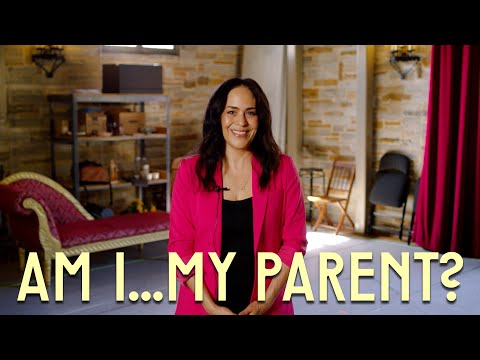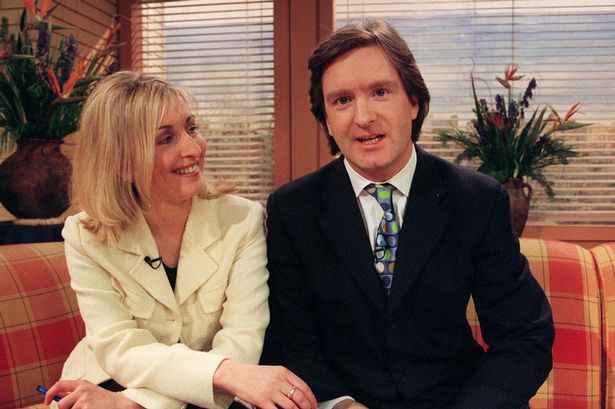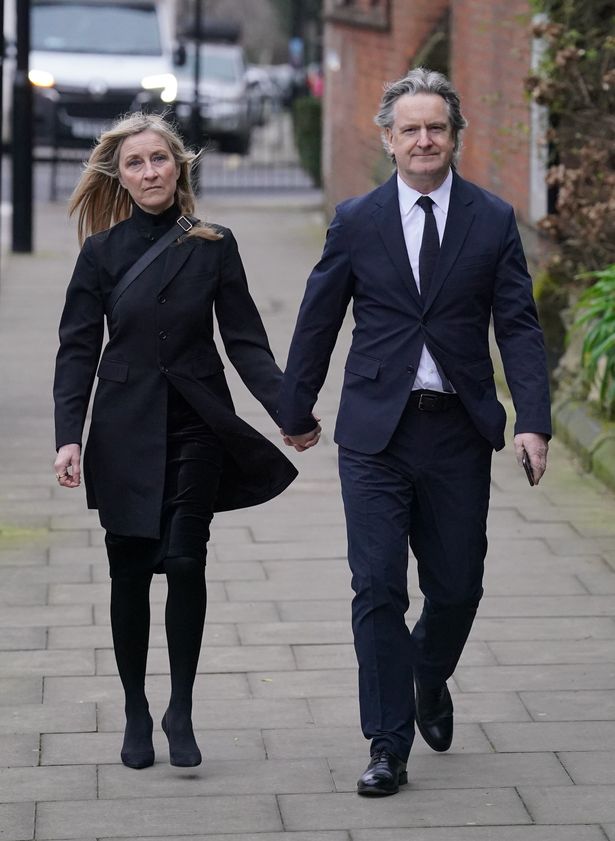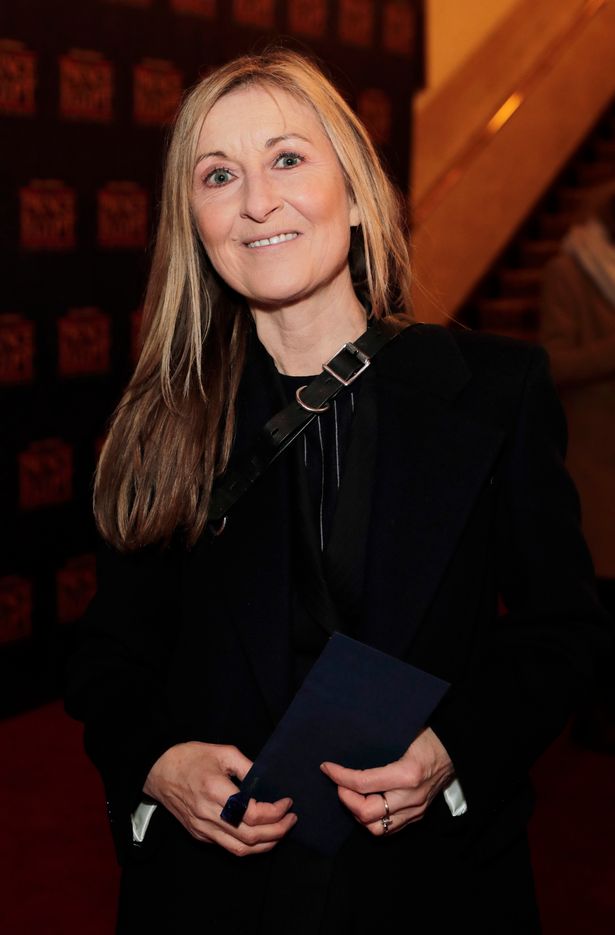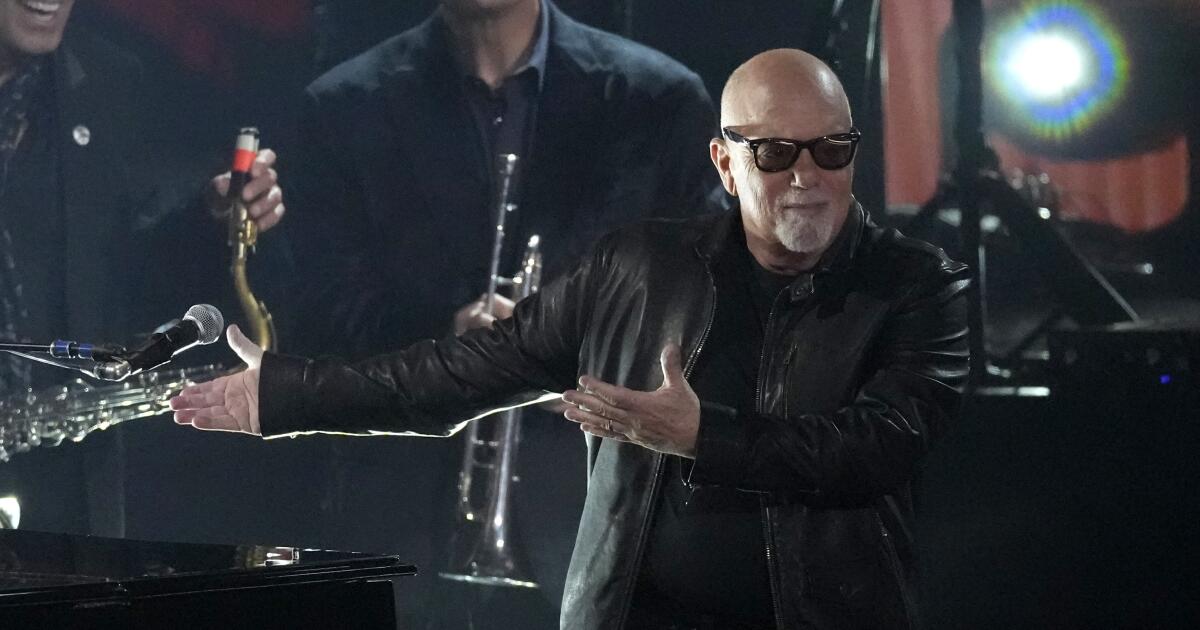The Latina actor-writer, best known for her role in Nickelodeon’s “Los Casagrandes,” meets grief with comedy in her one-woman show, which details the process of caring for her aging mother with Alzheimer’s disease.
How does one care for their aging parent without losing sight of their own identity?
The first thing Roxana Ortega will say is: “We have to not abandon ourselves.”
The L.A.-born Latina actress outlines the deeply emotional process of caring for an aging parent in her first play, “Am I Roxie?,” which premieres Sept. 11 and kicks off the Geffen Playhouse’s 2025-26 season.
The production will remain through Oct. 5 at the Gil Cates Theater and is directed by Bernardo Cubría, (“Crabs in a Bucket” and “The Play You Want”).
Ortega’s one-woman show was inspired by her mother, Carmen, whose memory is in decline due to Alzheimer’s disease. Bounded by her commitment to being the perfect Latina daughter, Ortega illustrates how she stepped up to provide caregiving duties, while trying to sustain her acting career — even if it was just a Jimmy Dean breakfast sandwich commercial.
“This show to me is about how to not abandon ourselves in a time of such great darkness,” says Ortega through a video call.
Onstage, Ortega masterfully transforms her solo act into an ensemble performance, through her many quirky accents and mannerisms alone; her characters range from her three Peruvian tías to an imaginary cholo critic and a perky, silicone-bloated nurse.
Capturing a broad emotional spectrum, from joy to grief, it is clear that Ortega — a former troupe member of the Groundlings Sunday Company — showcases a lifetime of skills on the Westwood stage.
“Everything just merged as I was trying to write about what was happening,” says Ortega. “I was also leaving sketch comedy [group] the Groundlings, so I was finding my own voice. All those things merged to birth this, a perfect combination of so many desires and dreams I’ve had.”
With over 80 acting credits to her name, the multi-hyphenate artist is best known for voicing the melodramatic Frida Casagrande from Nickelodeon’s Emmy-winning show “The Casagrandes,” an animated sitcom about a family living in the fictional Great Lakes City. Other notable credits include Netflix’s “Grand-Daddy Day Care” and “Santa Clarita Diet,” Warner Bros.‘ “Miss Congeniality 2” as well as the popular Fox series “New Girl.”
Audiences should buckle up — preferably with tissues at the ready — for a roller coaster of emotions, as they witness Ortega relinquish control over an unchangeable fate, while holding compassion for her mother and herself in “Am I Roxie?”
This interview has been edited and condensed for clarity.
Your one-woman show, “Am I Roxie?,” explores your personal journey as a caretaker for your aging parent, but it also focuses on your artistic aspirations. Can you walk me through your decision to make this the subject of your next project?
I’ve always wanted to turn my personal material into art; most artists do feel that way. I had been doing it for quite a while in sketch comedy, [by] taking characters like my tías, who I find to be so hysterical, and trying to put them into things. So I knew somewhere in the back of my brain — or in the middle — that I wanted to do a show about my family. I watched Ruben Santiago-Hudson’s “Lackawanna Blues,” so I always wanted to do that.
This play approaches heavy topics with humor. How did you strike that balance?
I think that’s just the way my brain works. I think a lot of comedians are this way; we’re always looking for laughs and maybe that’s how we survive ’cause we are very sensitive people — I’m very sensitive and very intense, so laughter is that levity.
Through the development process, we did have some discussions about certain moments. Do we want people to laugh when I’m in the chaise longue texting, “Is [my mom] still alive?” We had more “Shark Tank” sounds running through that and then changed it.
Caregiving is obviously a huge endeavor for Latinos — Latina women, more specifically. How do you make sense of the idea of care now?
I [think of] abandonment. There’s something so primal when somebody is aging and you can tell, “This person was in charge of me; they’re so vulnerable; now they need me. Oh my god, I can’t abandon them, right?” You feel like, “I don’t want to be abandoned, so I don’t want to abandon them.” It really shocked me how strong that urge was and I think we also have to not abandon ourselves. We absolutely cannot.
If you go into the caregiving world, they talk about care like: “Here’s your pills, here’s the food and we have some music coming in.” Maybe if you’re lucky, there’s bingo — but my mom wouldn’t play bingo! Are you f— kidding me? Care should be individualized. It should address the spirit.
Guilt creeps up in this play disguised as your inner Latina critic every time you do something that feels selfish in light of your mom’s situation. What relationship do you have with your inner critic now?
I definitely feel like I’ve gone through a journey from fear to love with the task of caregiving and even in relation to myself; I learned to love myself more, which is part of caring for yourself.
In this process of putting [my story] out there, of just being so gentle with myself and saying, “No matter what happens, no matter how it’s received, I’m not going to put my identity on the line.” There will be no beating myself up. There will be no, “Now you’re terrible because this, this, this …” It’s always a practice. Life is too short for us to feel bad.
There’s no benefit to suffering, and most of our suffering we do to ourselves through that critic by giving it power. And in our culture, sometimes it’s glorified.
You’re an overachiever, a Berkeley grad and former Groundlings member. But in “Am I Roxie?,” you balance the urgency of achieving your goals with the grief of losing a parent who is still alive. How did it feel to not give up on your dreams?
I felt like a terrible daughter. It’s hard. There’s a point in the show when I leave my mom and she says, “Don’t leave me here,” and I leave her and go to an audition. That’s a hard moment and I can tell that the audience is like, “How could you do that?” It feels vulnerable to show that I did that. But then, how does a mother leave their child at kindergarten? How can you find the balance where you are nurturing yourself and nurturing somebody else?
It was hard. I would beat myself up a lot and cry about feeling so terrible. And then go the next day to absolve myself. The more [my mom] found other relationships with a caregiver, the more I felt like, “Okay, she’s safe.”
Motherhood is also at the core of your story — not just with your mother, but as you explore your own fertility journey. How did your concept of motherhood change after caring for your mother?
What I didn’t explicitly say in the play is that I am a mother. I mothered my mother. Now, not everyone who is a mother by having a baby is necessarily a “mothering mother.” Something that this disease taught me is what these words really mean. What is it to be a sister? What is it to be a mother? What I learned in caring for my mom is that I am a mother, because I was able to nurture on such a deep level. Even when all the signs showed that she’s not there anymore. A mother knows her baby. She was my baby at the end.
After our fertility journey, 10 years of trying, me birthing this piece of art was me mothering my creativity into existence.
You don’t mention Alzheimer’s by name until that very end. Why?
Part of it was accepting the journey and being able to say the diagnosis. Sometimes there’s an avoidance around Alzheimer’s. Nobody wants to say the word or talk about the disease ’cause it’s sad. So I wanted to make it a moment when I actually said it so that we can see the weight of it. Hopefully viewers will leave the theater being able to speak about it and to know it in an intimate way. Naming it is so important, so we can take the sting and discomfort off.
There are tender moments onstage where you let out tears. What is it like to relive those real-life moments on stage every night?
It is so difficult, more difficult than I thought it would be. My mom is onstage with me when I walk out there. I take her hand and I put her in that little opera chair next to me and we are together. Saying goodbye to her every night is hard.
